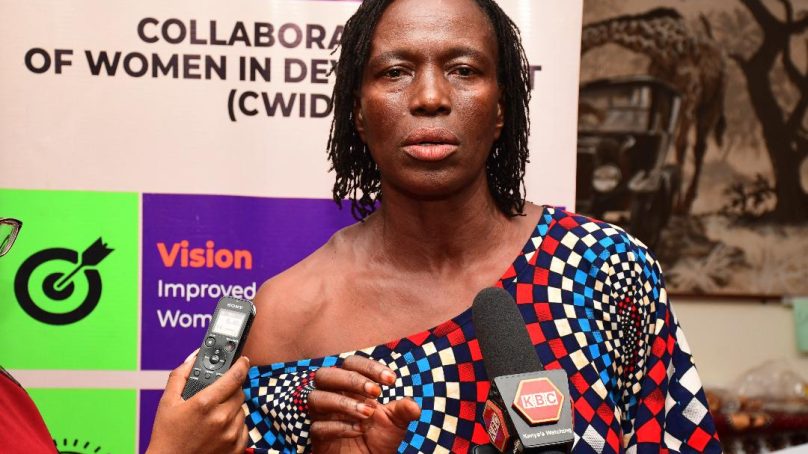
Collaboration of Women in Development (CWID), a public benefit organisation, is intensifying its efforts to combat corruption at grassroots as a way of cut off its tentacles through feminist networks.
Speaking in Mombasa during a three-day workshop convened by the Global Fund for Women, participants from Syria, Uganda, Kenya, Nepal, Armenia, Guatemala and Mexico, the CWID Executive Director Betty Sharon, said the organisation had a training and an exchange learning programme on how to effectively deal with corruption at the lower end of economies in developing countries.
Ms Sharon explained that the participants were keen to learn how corruption affects organisations in their countries and how best they can stop corruption through the exchange of best practices, leveraging grassroots feminist networks.
“In many cases, when we talk about corruption, we only see corruption at the highest level, but we are forgetting that at the low level, we support corruption knowingly and unknowingly,” she said.
She disclosed that the organisation has opted to attacks the vice from the grassroots as corruption mostly affects the common man, woman and child at the bottom of the pyramid.
“They don’t realise they are enabling corruption. They’re doing it unknowingly but it strengthens corrupt systems. Corruption cuts across sectors and borders. It affects not only Kenya but also the other countries represented here, especially through gender-based violence,” Sharon explained.
She further noted that women are disproportionately affected by both corruption and sexual violence. Many reports of sexual and gender-based violence (SGBV), she said, are dismissed or never make it to court due to corruption.
“People are corrupted left, right and centre, not the police, the person handling that case and sometimes the guardian or the parent of the victim,” Sharon pointed out.
On her part, the executive director and co-founder of the Syrian Female Journalists Network, Rula Asad, described the workshop as insightful, as participants learned what different countries are doing to address corruption from a feminist perspective, and their focus on marginalised groups in the community.
According to the 2023 National Ethics and Corruption Survey conducted by the Ethics and Anti-Corruption Commission (EACC), 57.3 per cent of the 5,100 respondents perceived the level of corruption in Kenya as high. Notably, 24.7 per cent attributed this to the rising cost of living.
“Most respondents (44.7 per cent) felt that corruption is increasing. The key reasons cited were: high cost of living (29 per cent), more corruption cases being reported (20.7 per cent) and lack of action to reduce corruption (8.1 per cent),” the report states.
The survey identified the Ministry of Interior and Coordination of National Government (47.1 per cent), the Ministry of Health (13.2 per cent) and the Ministry of Transport, Infrastructure, Housing, Urban Development and Public Works (5.8 per cent) as the institutions where corruption is most likely to be encountered.
Among government departments and agencies, the police (60.6 per cent), the immigration department (4.4 per cent), and the registrar of persons (4.0 per cent) were perceived as most prone to corruption.
At the county level, county health services (39.1 per cent), county transport (11.9 per cent), and trade development and regulation (10.0 per cent) were viewed as the most corruption-prone departments.
Government departments and agencies perceived to be most prone to corruption were: police (60.6 per cent), immigration department (4.4 per cent) and registrar of persons (4.0 per cent).
While in the county governments, county health services (39.1 per cent); county transport (11.9 per cent) and trade development and regulation (10.0 per cent) were perceived to be the most corruption-prone county government departments.
- A Tell Media / KNA report / By Sadik Hassan







